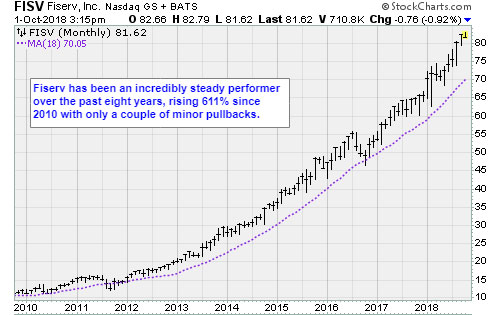Something important is happening. The same forces that turned movies, music and shopping into bits of data are transforming financial services.
To the general public, Betterment LLC is largely unknown. Old-guard banks and brokers do not have that luxury. This hip, New York new-age asset manager is taking the sector by storm with robo-investing, low fees and customer obsession.
The future of finance is software innovation, and it is coming fast.
Jon Stein had a bright idea in 2008. He saw a way to deliver simpler, more-effective financial service products using automation.
The engineer, a graduate of Columbia Business School, bought into the idea so fully that his initial business plan had no other employees. He would write the code and do the marketing, customer service and design.
He quickly realized that trying to become an expert in everything was crazy and expensive. Plus, it did not produce better results. Ironically, he was also duplicating the same bad investing experiences he hoped to eliminate with Betterment.
In an interview with TechCrunch last week, Stein explained that most self-directed investors spend a huge amount of time learning everything they can about sectors and stocks. Yet, most of the time, they still can’t beat an unmanaged benchmark like the S&P 500.
Betterment is the opposite of that. It directs customers to focus on what they do best: earning money.
Customers sign up online. They enter data about their goals, savings and income level. The software computes how much money should be invested with Betterment initially, how much over time and what risks lurk.
Then the algorithms kick in, based on personal preferences …
Software designs a diversified portfolio of low-fee mutual funds and ETFs. All the friction of building a tailored portfolio and a personalized financial plan is removed. Clients don’t have to worry about processes.
They also get 24/7 access to a live human adviser via their smartphone or the web. And the total fee for the complete package is only 25 basis points. On a $100,000 account, that is about $20 per month.
It is deal customers have grown to love.
Stein says it took a full year to capture the first $10 million in assets. Today, the stealthy fintech grabs that much every day. As of September 2018, total assets under administration are $15.5 billion, spread out over 400,000 accounts.
Established banks and brokers have taken an interest …
Fintech companies like Betterment are attacking every part of the financial services stack — wealth management, retail banking, lending and payments — with better customer service and dramatically lower fees.
They are using data analytics, artificially intelligent software, and consumer expectations shaped by smartphones and the internet to forge new business models that look more like Amazon.com (AMZN) than JPMorgan (JPM).
There is quiet desperation …
- Schwab (SCHW) introduced its version of Betterment in 2014.
- Since then, Vanguard — the largest mutual fund company in the word — has pushed into the business.
- And Goldman Sachs (GS) and JPMorgan are making their play with Marcus and You Invest, respectively.
Meanwhile, the publicly traded fintech businesses are pressing their advantages … preparing the next era of transformative products and services.
Square (SQ) and PayPal (PYPL) are building platforms on top of their leads in point-of-sale and online payments.
Visa (V) and Mastercard (MA), despite their massive size, continue to innovate in payments processing.
Intuit (INTU) and Automated Data Processing (ADP) are widening their lead in business-to-business financial software.
With so many smart companies investing heavily in AI-powered fintech, which should you invest in?
Consider this one …
For more than 30 years, Fiserv Inc. (FISV) has been helping banks, thrifts and credit unions manage cash and process payments, loans and account services. The Wisconsin-based company built a reputation for forward thinking.
Jeff Yabuki, chief executive at Fiserv, has been telling banking clients to invest beyond point-of-sale.
These are new categories they should win.
This means consumer-to-consumer, business-to-business and consumer-to business transactions. In most cases, the only competition is regular snail mail and wire services. Both are slow, unsecure and horribly fragmented.
The Fiserv sales pitch is working. The company has 12,000 clients worldwide, with 85 million online banking end users.
Related story: This Banking Middleman Knows the Route to the Loot
Fiserv is a consistent grower with best-in-class products, at a fraction of the enterprise value of mainstream tech companies like PayPal and Square.
In a world filled with game-changing competitors like Betterment, finding an edge is more important than ever.
Fiserv shares trade at 23.4 times forward earnings. The stock is up 26.6% this year. If you like this trend and how this stock is riding it, you can consider buying shares pullbacks.
Best wishes,
Jon D. Markman
P.S. For more trading ideas to help you profit from this fintech revolution, check out my recent article, “How Financial Technology is Eclipsing the Banks.”





